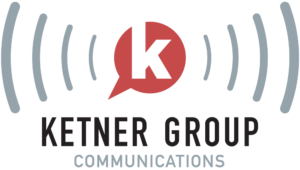 Every PR or media professional has been there. We’ve all been assigned that writing piece that’s guaranteed to scramble your brain. Like a kid who hates dodge ball hiding from the ‘choose your team’ line-up, you shrank in your seat or went silent on your phone line hoping that the arduous task wouldn’t fall to you. But just as the dodge ball-hating kid needs to play for a grade, you need to write for a living.
Every PR or media professional has been there. We’ve all been assigned that writing piece that’s guaranteed to scramble your brain. Like a kid who hates dodge ball hiding from the ‘choose your team’ line-up, you shrank in your seat or went silent on your phone line hoping that the arduous task wouldn’t fall to you. But just as the dodge ball-hating kid needs to play for a grade, you need to write for a living.
Now that the challenging writing assignment is yours, let’s talk about some ways that could make it easier for you to formulate an intelligent collection of thoughts about a subject about which you honestly know nothing. It’s been a while since I’ve used the Acrostic method to make a point, so let’s use WRITE to spell out a workable method to successfully writing this madness.
————————————–
W
Who is your audience? I know this sounds basic, but it’s an important step we writers sometimes skip when launching into an article. You should really stop to identify for whom you’re writing so that (1) you know how to position the information and (2, and most helpfully) you can understand which sources could help you better comprehend the topic. Many people in your audience most likely have written content on the topic, as well. This brings us to our next letter.
R
Research, research, research. Clients love to give us the go-ahead on writing bylines and other pieces, but rarely have time to instruct us on the subject matter. When a client’s industry is highly technical or difficult to understand, this could be a nightmare. Therefore, work in time to do a deep-dive research session. Many times, this requires moving beyond reading through the material your client sent and finding handfuls of other articles written by professionals in the industry. Recently, I had to write a blog post about a highly-detailed, business profitability best practice. I spent about an hour just researching the topic before I even wrote one word.
I
Intelligent sources. When you obviously can’t speak as the expert, find experts who can. This goes hand-in-hand with research. Researching sparks great ideas, but if these ideas aren’t your own, quote them. This is a great way to get a point across fairly, and add credibility to your article. Continue reading
